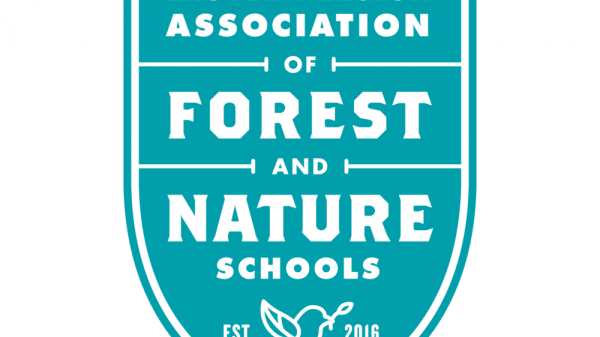Nature Based Teacher Certification Course Online!

Nature Based Teacher Certification Course Online
This 36-hour course provides in-depth study of best practices in nature-based early childhood education to prepare you for meaningful outdoor learning experiences. Whether you are in a formal school or childcare setting or working in a nature or forest preschool, this course is designed to meet the needs of early childhood educators working in any setting.
The introductory certification course covers a range of skills and approaches crucial to implementing nature-based early childhood pedagogy. Topics include: working in and with the local landscape; risk management and safety routines; developmentally appropriate practice outside; emergent curriculum; licensing considerations; outdoor inquiry, literacy, creative arts, math, and games; making learning visible through documentation and assessment; breathing nature in classroom spaces; gear, supplies, and tools; honing naturalist skills and personal sense of wonder; and ways to support your learning community. We will also touch on relevant research, standards, NAEYC positions statements, and policy that impacts the delivery of nature-based ECE.
The intermediate course is designed for participants who have already completed the intro credential. During the registration process, you may include special topics for deeper study. The intermediate course delves into more nuanced facets of running a nature-based program, managing/mentoring teachers, and promoting your program. Participants will document outdoor teaching practices for an online learning component as part of the culminating credential.
The intermediate course addresses these topics:
- Preparation of the Guide: Reflective practices for deep, rich personal nature connection; approaches to hone clarity of mind, intentions, and purpose
- Teaching Practices & Outdoor Curriculum: Emergent and intentional curriculum; application of skill development across developmental domains in outdoor settings
- Authentic Assessment & Documentation: Assessment of child growth and development in the context of outdoor learning
- Administration: Shaping your program’s vision; key considerations for nature-based administrators; hiring; on-going staff mentoring; staff and program evaluation
- Primitive Skills & Handcrafts: Practical skills using tools and local natural resources; fire-making, foraging, and cooking with young children
- Risk Management: Health and safety topics; policies and procedures that protect children, families, and staff; special considerations for administrators
- Land Values & Stewardship: Implementing and instilling sustainable approaches to sharing the land and its natural resources; local natural history, ecology, and conservation topics surround a given site; identification of native flora/fauna and ecological communities; cultural and ethical considerations about land use
